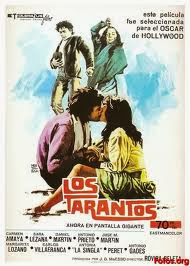Filmoteca Española (Madrid). Cine Doré, Calle Santa Isabel, 3.http://www.mcu.es/cine/MC/FE/index.html
SEPTIEMBRE 2013
O Dikhipen VI- 50 años de Carmen Amaya
Semana de Cine Chino
Recuerdo de José Luis Borau
Recuerdo de Leonardo Favio
Henry Hathaway
Kiju Yoshida & Mariko Okada
Cine para todos
JULIO 2013
Si aun no la ha visto...
Rafael Gil: 100 años
Año Dual España-Japón: 36 directores japoneses
Luis Buñuel, 30 años
Jonás Trueba
Cine para todos
JUNIO 2013
Tim Burton (y II)
Olivier Assayas (y II)
La subversión de la moral del deseo en la Transición
Recuerdo de Erland Josephson, Theo Angelopoulos, Tonino Guerra, Patricia Medina, Paulo Rocha
Año Dual España-Japón: 36 directores japoneses
Gil Parrondo
Cine Theatre Ensemble: Willy Reilly and His Colleen Bawm (1920)
10a Muestra de cine de Lavapiés
Cine para todos
MAYO 2013
Tim Burton (I)
Olivier Assayas (I)
Recuerdo de Jorge Semprún
Cine para todos
Documenta Madrid 13: El documental durante la Transición en España
XII ImagineIndia: Sección competitiva
XII ImagineIndia: Heynowski & Scheumann. en Vietnam
ABRIL 2013
Roman Porno-Nikkatsu
Recuerdo de Tony Leblanc
Lo mejor de FCAT (y II)
André S. Labarthe
Peter von Bagh, un finlandés universal (y II)
Buzón de sugerencias
Cine para todos
MARZO 2013
Nikkatsu (1939-1989)
En femenino:
- Juana de Arco: 3 retratos
- Lo mejor de FCAT (I): 4 realizadoras africanas
- Ann Hui: sus 2 últimas películas
Recuerdo de Juan Luis Galiardo
3XDOC: Victor Kossakovsky y Andrés Duque
Peter von Bagh, un finlandés universal
V Semana de cine de Hong Kong (y II)
Cincuenta años de James Bond (II)
La mirada japonesa: paisajes humanos I
Reza Mir-Karimi
Cine para todos
FEBRERO 2013
ARCO 2013-Nuevo cine turco
V Semana de cine de Hong Kong
Recuerdo de Tsilla Chelton, Sancho Gracia, Ray Bradbury, Chris Marker
Buzón de Sugerencias: 50 años de James Bond
Restauraciones de Filmoteca Española (II)
La mirada japonesa: paisajes humanos
Nathaniel Dorsky
Cine para todos
ENERO 2013
Luigi Zampa, maestro olvidado del cine italiano (y II)
Michael Cimino (y II)
III Muestra de cine rumano (y II)
Recuerdo de... María Schneider, Aurora Bautista, Bernardo Bonezzi, Quique Camoiras, Lina Canalejas, Gonzalo Cañas, Jordi Feliu, César Fernández Ardavín, Carlos Larrañaga, Joaquín Parejo-Diaz, Lina Romay, Joaquín Romero Marchent, Marcel Hanoun, Celeste Holm, Herbert Lom, Fernando Lopes, Moebius
Juan Marsé habla de Juan Marsé
Los sonidos del silencio. Cine Mudo Sonorizado (1933-1955)
La mirada japonesa: pensar la guerra (y III)
Cine para todos
DICIEMBRE 2012
Luigi Zampa
Recuerdo de Ken Russell
Recuerdo de María Mercader
Evita / otra mirada
X Mostra Portuguesa (y II)
III Muestra de Cine Rumano
Michael Cimino
Ida Lupino (y II)
Premios Goya (y III)
Raúl Ruiz (XI)
Cine para todos
JULIO 2012
Claves para una historia del cine (IV):
- Selección de 17 películas de Howard Hawks
- Almodóvar, Antonioni, Buñuel, Dieterle, Dreyer, Erice, Fellini, Kurosawa, Losey, Mizoguchi, Ozu, Polanski, Rossellini, Tati, Visconti...
Centenario de Jirí Trnka
XI ImagineIndia (y III)
Canal+ presenta
Cine para todos
JUNIO 2012
PHotoEspaña 2012: Andy Warhol. Pruebas de proyección y películas de la Factory
Nuevo Cine Sueco
Claves para una historia del cine (III)
Raúl Ruiz (VII)
Centro Sefarad-Israel: Muestra del Festival de Cinema Jueu de Barcelona
Recuerdo de Carlos Pérez Merinero
XI ImagineIndia (y II)
La mirada japonesa: el camino del artista (y III)
9a Muestra de cine de Lavapiés
Cine para todos







